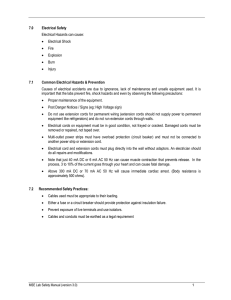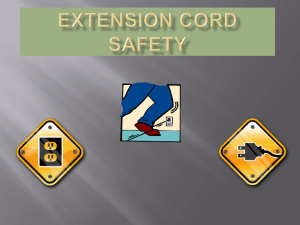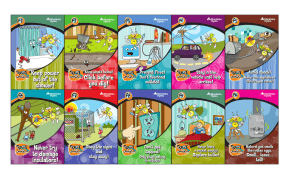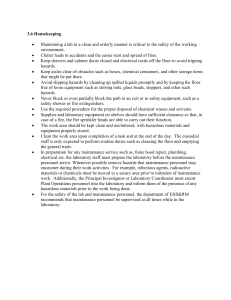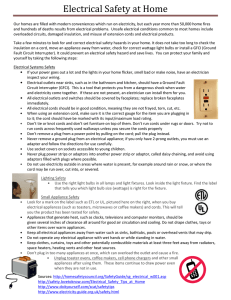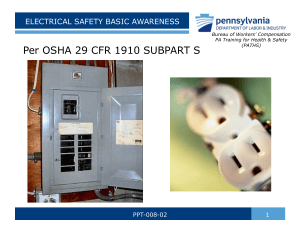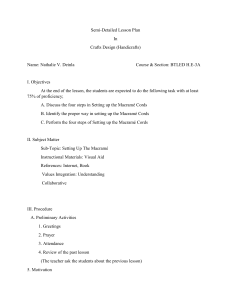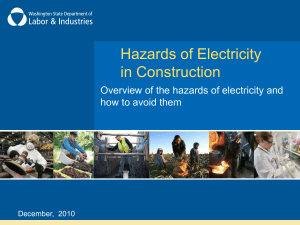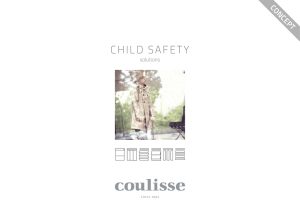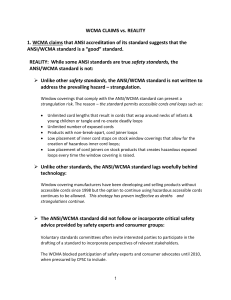EXTENSION CORD SAFETY - Missoula Electric Cooperative
advertisement
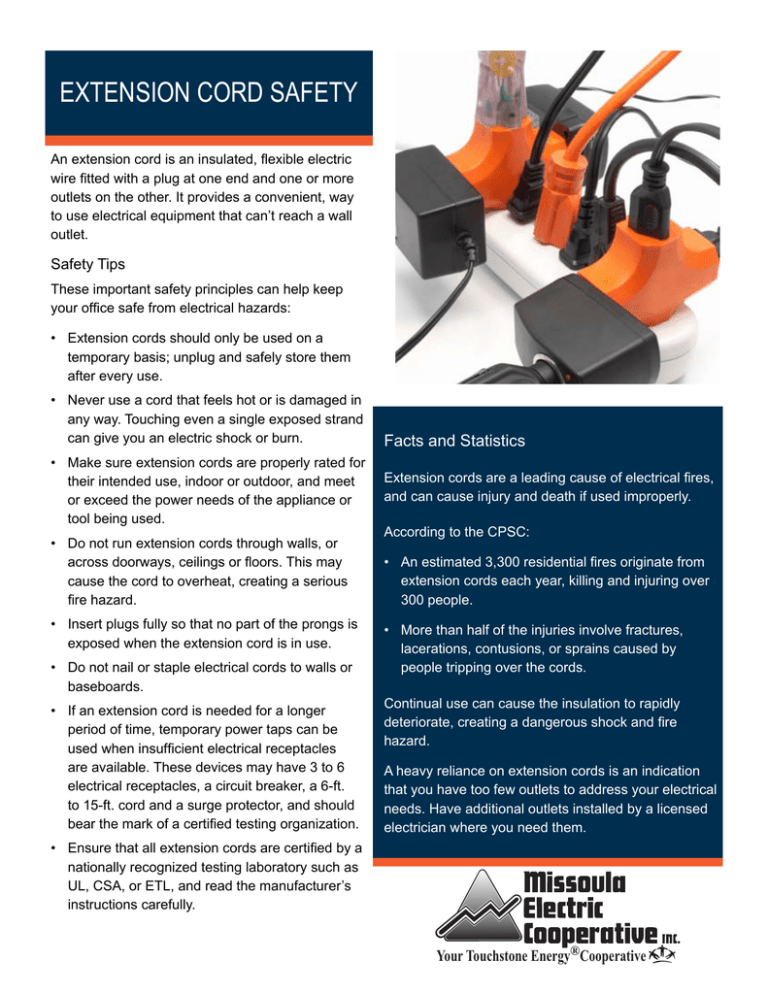
EXTENSION CORD SAFETY An extension cord is an insulated, flexible electric wire fitted with a plug at one end and one or more outlets on the other. It provides a convenient, way to use electrical equipment that can’t reach a wall outlet. Safety Tips These important safety principles can help keep your office safe from electrical hazards: • Extension cords should only be used on a temporary basis; unplug and safely store them after every use. • Never use a cord that feels hot or is damaged in any way. Touching even a single exposed strand can give you an electric shock or burn. • Make sure extension cords are properly rated for their intended use, indoor or outdoor, and meet or exceed the power needs of the appliance or tool being used. • Do not run extension cords through walls, or across doorways, ceilings or floors. This may cause the cord to overheat, creating a serious fire hazard. • Insert plugs fully so that no part of the prongs is exposed when the extension cord is in use. • Do not nail or staple electrical cords to walls or baseboards. • If an extension cord is needed for a longer period of time, temporary power taps can be used when insufficient electrical receptacles are available. These devices may have 3 to 6 electrical receptacles, a circuit breaker, a 6-ft. to 15-ft. cord and a surge protector, and should bear the mark of a certified testing organization. Facts and Statistics Extension cords are a leading cause of electrical fires, and can cause injury and death if used improperly. According to the CPSC: • An estimated 3,300 residential fires originate from extension cords each year, killing and injuring over 300 people. • More than half of the injuries involve fractures, lacerations, contusions, or sprains caused by people tripping over the cords. Continual use can cause the insulation to rapidly deteriorate, creating a dangerous shock and fire hazard. A heavy reliance on extension cords is an indication that you have too few outlets to address your electrical needs. Have additional outlets installed by a licensed electrician where you need them. • Ensure that all extension cords are certified by a nationally recognized testing laboratory such as UL, CSA, or ETL, and read the manufacturer’s instructions carefully. Your Touchstone Energy®Cooperative
